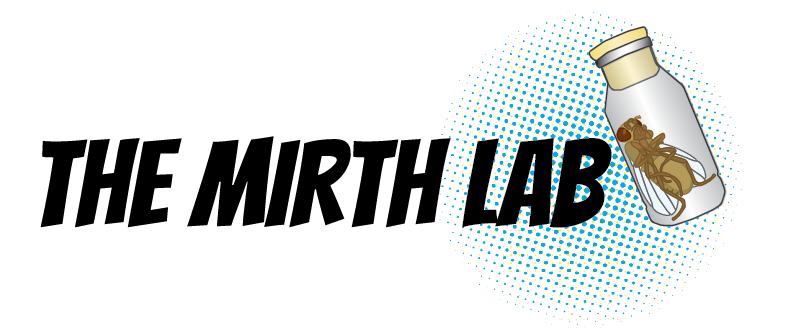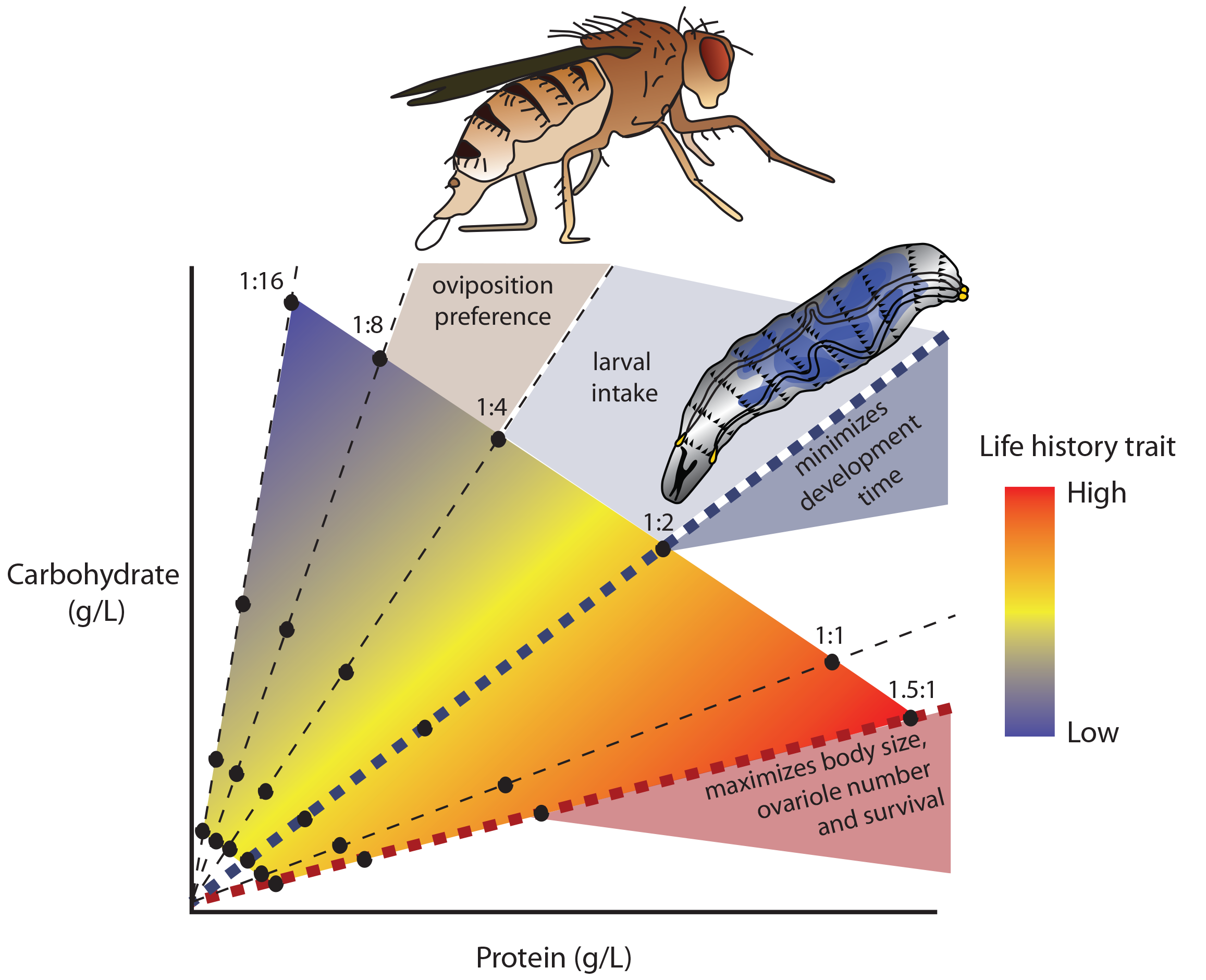Foraging behavior
The regulation of foraging behaviour in Drosophila
Flies make foraging choices based on their developmental stage and the nutritional quality of their food substrate. These choices bear important impacts on life history traits of the animal. We seek to understand how foraging behaviour relates to life history, and to uncover the neural regulation of foraging behaviour in Drosophila melanogaster.
Life history traits respond differently to the macronutrient composition of the larval diet in Drosophila melanogaster. Further, larvae regulate their food intake towards the macronutrient combinations that minimize developmental time, and females prefer the lowest protein to carbohydrate ratios for oviposition.
The evolution of foraging behaviour in Drosophila
Species of Drosophilid fruit flies partition resources by colonizing rotting fruit at different stages of ripening or decay. We explore how the macronutrient composition of the food affects life history traits, larval foraging behaviour, and oviposition choice in species that colonize fruits at different stages of decay. With this, we hope to gain insight how temporal specialization of a resource drives the evolution of life history and behavioural traits.



